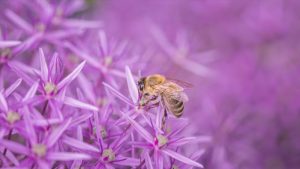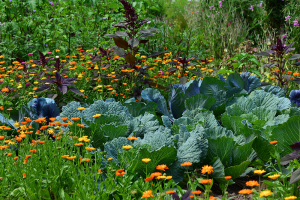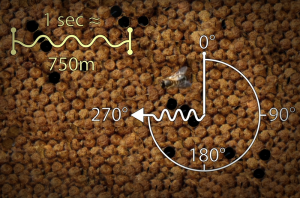Urbanization significantly affects biodiversity and can have negative impacts on many animal species, including pollinating insects. At the same time, however, bees seem to be thriving more in the city than in the countryside. And it’s not good news.
A new study carried out by a team of German researchers has shown that the populations of hymenoptera, in particular of bees and bumblebees, today are more widespread in urban contexts than in rural ones and that pollination of flowers is more successful in cities than in the countryside.
The researchers selected plant-rich locations in parks and botanical gardens in nine major German cities, including Berlin and Dresden, and assessed the number of visits made to flowers by pollinating insects. The results were then compared with those recorded in similar areas located in the countryside.
At the end of the experiment, the researchers found that although there was a greater variety of pollinators in rural areas, bees and bumblebees have visited plants more frequently in the city, resulting in a higher rate of pollination.
According to the researchers, these surprising results are due to these insects’ ability to better adapt to urban environments, outperforming other pollinators.
Bees are in fact able to thrive in a wide range of habitats such as soil, dead wood, cavities in the walls of buildings and are able to find nourishment among the great variety of flowering plants that populate parks and city gardens.
Theoretically, the countryside should be the ideal environment for pollinators, including bees and bumblebees, because they offer better habitats and biodiversity. Unfortunately, this is not the case due to intensive agriculture. Due to current, destructive agricultural techniques, the rural environment has been deprived of grasslands, forests, flowers and is now less hospitable than cities.
Furthermore, wild bees and bumblebees are particularly sensitive to pesticides and suffer greatly from the effects of the many chemicals used in agriculture.
Since bees are intelligent animals and capable of learning and finding solutions to problems, they have sought an environment more suited to their needs and, as absurd as it may seem, found it in the city.
The results of this study should make us reflect on how human activities are modifying ecosystems, transforming them to meet our needs, completely neglecting those of other species.
The researchers recommend taking into account the needs of other animals and in particular bees, when planning landscapes both in the city and in the countryside.
It is essential to protect bees and pollinators, if we want to continue having plants, flowers, fruits and, consequently, food on our tables.










